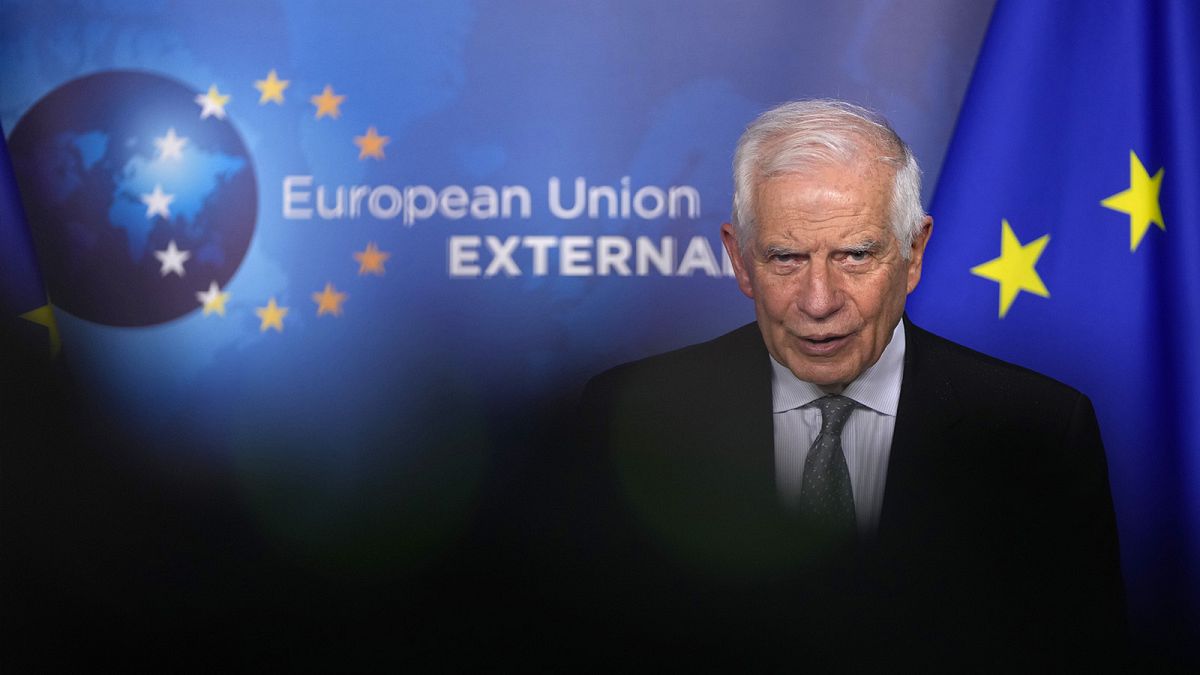Brussels has issued a warning to both Belgrade and Pristina regarding the importance of compromise in order to secure Serbia and Kosovo’s chances of joining the European Union. The EU High Representative for Foreign Affairs and Security Policy, Josep Borrell, expressed disappointment in the lack of progress in implementing the agreement between Belgrade and Pristina during recent meetings. He emphasized the European Union’s commitment to normalizing relations between the two parties, despite obstacles hindering the dialogue. The unresolved issue of Pristina’s demand for Belgrade to hand over suspects involved in the Banjska attack in September last year has stalled progress in the talks. Borrell highlighted the necessity for both sides to come to the table and engage in a constructive dialogue to move forward in the negotiations.
Leaders from Serbia and Kosovo recently met in Brussels to discuss the implementation of an EU-backed plan to normalize ties between the two factions. However, disagreements over key issues, such as Pristina’s demand for justice regarding the Banjska attack, have hindered the process. Kosovo’s hesitance to engage in a trilateral meeting with Serbia has also posed a challenge to advancing the negotiations. Despite Serbia’s readiness to participate in the talks, a lack of willingness from Kosovo has created a stalemate in the dialogue process. Borrell expressed hope for a different outcome in future discussions, suggesting that a new round of dialogue could lead to a more positive result.
The ongoing dispute between Serbia and Kosovo dates back to 2008 when Kosovo, a former Serbian province, declared independence – a move that Belgrade refuses to acknowledge. The contention over the status of Kosovo has been a longstanding issue in the region, with tensions escalating during recent talks in Brussels. The EU has reiterated the importance of compromise and cooperation between the two parties in order to resolve the conflict and pave the way for their potential membership in the European Union. Brussels has cautioned both Belgrade and Pristina against refusing to compromise, as it could jeopardize their prospects of joining the bloc in the future.
As discussions between Serbia and Kosovo remain at an impasse, the European Union continues to emphasize the need for both parties to demonstrate flexibility and willingness to engage in constructive dialogue. The EU-backed plan to normalize relations between Belgrade and Pristina serves as a critical step towards resolving the longstanding conflict in the region. Despite challenges and unresolved issues, including demands for justice over the Banjska attack, the European Union remains committed to facilitating dialogue and fostering cooperation between the two factions. Moving forward, leaders from both Serbia and Kosovo must be prepared to set aside their differences and work towards finding mutually beneficial solutions for the benefit of both nations.
The European Union has played a pivotal role in mediating talks between Serbia and Kosovo, encouraging both parties to work towards a peaceful resolution to their conflict. Brussels has reiterated the importance of compromise and cooperation as essential components in advancing the negotiations between Belgrade and Pristina. Failure to reach a consensus and refusal to engage in productive dialogue could have significant repercussions on Serbia and Kosovo’s aspirations to join the European Union. By heeding the warnings from Brussels and demonstrating a commitment to compromise, both parties can make progress towards resolving their differences and moving closer to eventual EU membership. The upcoming dialogue between Serbia and Kosovo presents an opportunity for renewed engagement and a chance to overcome the obstacles that have hindered progress in the past.





















